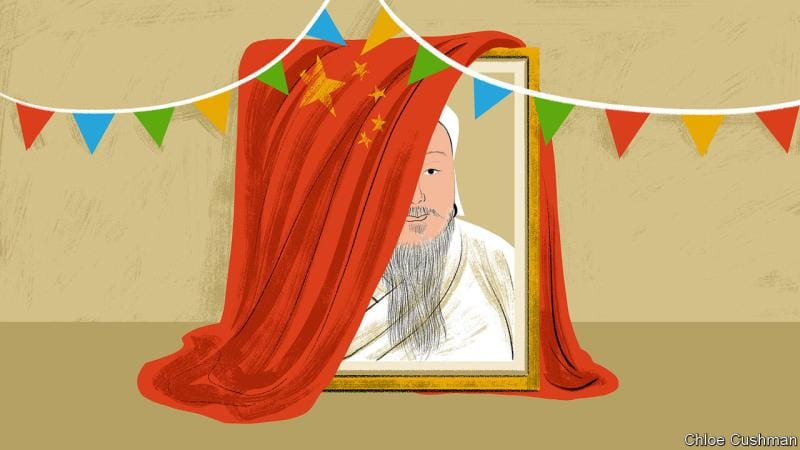
Shannon's excerpt from the article: "The Economist [excerpt]: Harshness is a crude metric for judging an unelected regime. To keep #power, lots of rulers will crush dissent with an iron fist. A more subtle measure involves thoroughness. ...
...Revealingly ... the Xi era has seen moves to smother #traditions that pose no conceivable challenge to #nationalsecurity. Chaguan recently travelled to one of the oddest places on #China’s ethnic map, the Xingmeng Mongolian Township of #Yunnan province. This rural township of about 6,000 people lies in the lush, tobacco-growing hills of southern China near the border with Vietnam—about 2,500km from the grasslands and deserts of Inner #Mongolia. Locals claim descent from Mongolian armies, initially led by Kublai Khan, grandson of Genghis, that conquered the region in the 13th and 14th centuries. In their telling, some soldiers stayed on after their Mongol overlords were defeated and driven back north by Ming-dynasty emperors. After an early flurry of intermarriage with local women, these 'Yunnan Mongolians' reputedly settled down as fishermen and carpenters in five villages.
...After Mao’s death in 1976 Xingmeng enjoyed something of a golden age, as #history was harnessed for economic development. Teachers visited from Inner Mongolia to give #language lessons at the primary school. Cement replicas of nomads’ tents, horse sculptures and other Mongolian touches appeared. A damaged temple was restored in 1985 as the 'Three Saints Temple', housing statues of Genghis and Kublai, as well as Mongke (Kublai’s brother). A Mongolian folk festival, called Naadam, was held every three years. It began with ceremonies honouring those royal ancestors.
No stately pleasure-domes here
Not this year. No worship of Genghis Khan was allowed as the latest Naadam began in Xingmeng on December 15th (though early that morning some locals quietly slipped into the temple to light incense before the Khans’ impassive statues). At the opening ceremony, a parade featured cloth and bamboo models of fishing boats, shrimp, clams, dragons and a large, dancing white elephant. Missing was a cloth and bamboo model of Genghis Khan on horseback, which appeared at the last Naadam in 2017.
A few years ago Xingmeng’s schools stopped offering Mongolian language lessons. The state has also reduced the number of bonus points given to ethnic-Mongolian students taking university-entrance exams. Pointedly, at the Naadam opening ceremony local leaders hailed #XiJinping Thought and the ethnic unity of the Chinese nation. In Xingmeng’s cobbled back alleys, your columnist heard wistfulness and fatalism about the new Naadam, rather than revolt. Asked about the changes, an old man said: 'All nationalities should unite, and all Chinese should listen to what the party says. Isn’t that how it works with political issues in China?'
It takes an implacable regime to hear such words and still detect a need for stricter controls. China has such a regime."
#news

